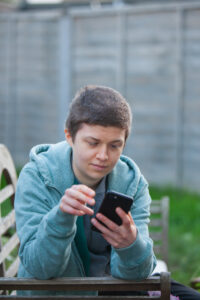If you read my blogs last year, you’ll already know that I spend a lot of my life thinking about the stories we’re not allowed to tell. The things we’re taught to keep hidden.
Masking neurodivergence, closeting our romantic and sexual orientations (or lack thereof), plastering a front over our health issues (temporary or chronic)…
And when you look at the global scale, it’s tragically clear how certain stories are stifled, erased, or shouted over. Kept from others’ perception to suit the preferred narrative.
The human condition is a marvellously rich and diverse tapestry. But how much of it do we get to see? What are we missing out on? What new things could we learn, or new connections could we find, if only less of life was kept tucked away in boxes or behind facades?
I am not alone in having gained vital self-understanding from the personal reveals of others. Often total strangers who chose to reveal to the world a private aspect of their existence which social mores say they should have politely kept hidden.

Learning...
Without those brave, kind souls, I would not have gained access to labels which let me learn what and who I am, how that differs from what people expect, and how to (at least in theory) bridge the gaps between myself and others.
I have gained a greater understanding of the people around me who are inherently different to me, by reading the accounts of others like them. Peeling apart someone’s head (metaphorically speaking, I promise) and inspecting how their mind works is tricky stuff. It helps immensely to have a teacher – or a dozen.
This is why a big theme of my life now is trying to find and spread authenticity. To hide less, share more (with consenting audiences, of course), and be as open as possible to other people doing the same. Which has resulted in some fascinating conversations. I heartily recommend it.
How to get started...
Try to assume as little as possible about people. I have a blog post on non-assumptive language which goes into this in more detail, but the general principle is to always be open to someone’s life being utterly different from yours. Expect anything.
For example, asking a stranger “So, what’s your job?”, while seemingly harmless, could be very awkward for them. What if they, like me, are unemployable due to health conditions? They may not be comfortable revealing that to a total stranger. What if they’re an unofficial carer who can’t work because of the need to support a loved one? Again, a possibly awkward and uncomfortable conversation to have thrust on you. Or maybe they just consider their job embarrassing, or boring, or something they don’t want to be defined by.
Instead, ask an open question like “So, what do you do?”. Someone with a “standard” answer will simply tell you about their work, often without even noticing that your question didn’t assume they work. For any of the people above, they might also answer by explaining their work situation (or lack thereof), and if so will likely appreciate that they don’t need to correct any assumptions.
But if they aren’t comfortable talking about working, they can instead choose to talk about hobbies, or goals they’re planning for, or anything else which falls under the nice vague category of “what you do”.
For me...
My experience is, the more open and unassuming you make your questions, the more interesting the conversations you have! It’s well worth analysing your vocal habits and practicing alternatives.
Let’s all throw our minds as wide open as possible, and air as much of this glorious tapestry of humanity as we can.

Lee Heywood
MBS Volunteer






